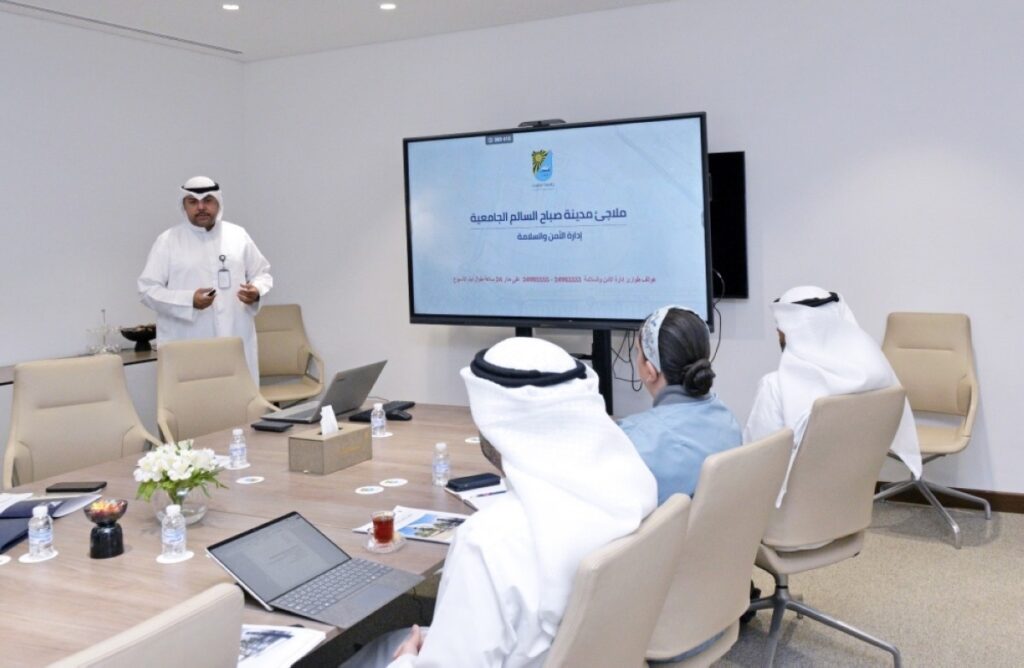Food and water supply stable; Institutions, including KU, KFF, discuss emergency plans
VIENNA/KUWAIT: The Gulf Cooperation Council (GCC) countries on Monday issued a strong call for de-escalation and restraint as military tensions continue to rise in the region following direct US strikes on Iran’s nuclear facilities and Tehran’s retaliation with missile and drone attacks on the Zionist entity.
Speaking on behalf of the GCC ambassadors accredited to the International Atomic Energy Agency (IAEA), Kuwaiti Ambassador Talal Al-Fassam stressed the need to halt the regional escalation immediately. “The recent developments are of great concern and pose a direct threat to security and stability in the region and the world,” he warned during an emergency session of the IAEA Board of Governors in Vienna. The IAEA’s emergency meeting was called to assess the security and radiation risks following the attacks on Iran’s nuclear infrastructure.
Al-Fassam emphasized that the targeting of Iran’s nuclear facilities carries potentially catastrophic consequences. “Calm and restraint represent the most effective path to avoid further tension,” he said, reiterating the Gulf countries’ support for diplomacy and dialogue as means of resolving conflicts. He urged the international community, particularly the IAEA’s Board of Governors, to take its responsibility seriously and act to address longstanding regional issues. “These issues have become a growing threat to regional and international peace and security,” Al-Fassam said.
The GCC envoys reaffirmed their unified stance on resolving disputes peacefully and promoting regional security through cooperation and lessons learned from past crises. They also acknowledged IAEA updates on radiation monitoring and requested continued briefings amid the ongoing conflict.
The GCC’s statements follow a sharp military escalation sparked by US strikes on Iran’s nuclear facilities in Fordow, Natanz, and Isfahan. Iran responded by launching missiles and drones against Zionist targets and the Al Udeid Air Base in Qatar.
The Iranian Supreme National Security Council said the missile strike was away from residential areas in Qatar. “This action does not pose any threat to the friendly and brotherly country, Qatar, and its noble people, and the Islamic Republic of Iran remains committed to maintaining and continuing warm and historic relations with Qatar,” the council said in a statement.
Qatar said it successfully intercepted the attack, which it condemned as a blatant violation of its sovereignty.

VIENNA: Kuwaiti Ambassador Talal Al-Fassam speaks during an emergency session of the IAEA Board of Governors.

Kuwait Fire Force Chief Major General Talal Al-Roumi meets UAE emergency management chief Ali Al-Neyadi to explore ways of boosting cooperation in disaster and crisis response.
Local preparations
Earlier Monday, Iran’s top military official, Abdolrahim Mousavi, accused the US of directly entering the war and warned that Iran would not hesitate to attack American interests. “We will never back down,” he said in a statement Monday morning.
As regional tensions rise, Kuwaiti institutions continue to step up their emergency preparedness. Kuwait University’s administration announced on Monday that it had reviewed emergency protocols in coordination with relevant national authorities. The university confirmed its readiness and reaffirmed its commitment to continuous coordination with the state. “The university administration, led by Director Dr Dina Al-Mailem, will maintain constant communication with national entities to stay updated on developments,” read an official statement, urging the public to report emergencies via its 24/7 hotline: 24983333.
No food shortages
In the economic sphere, the Ministry of Commerce and Industry assured citizens that the country’s food supply remains stable. “The situation is completely stable. There is no shortage of essential food items,” said ministry spokesperson Abdullah Al-Herz. He noted that water production continues around the clock, supply chains remain uninterrupted, and consumer cooperatives are operating as usual. “Emergency plans are fully in place,” Al-Herz added, highlighting that commercial inspection teams are actively monitoring markets to ensure price stability and stock availability.
Security and defense
Meanwhile, regional military and emergency coordination is ongoing. In Kuwait, Naval Forces Commander Major General Sulaiman Al-Hamlan met with UK Defense Senior Advisor for the Middle East and North Africa, Vice Admiral Edward Algerine, at Mohammed Al-Ahmad Naval Base. The two sides discussed key military topics and areas of joint interest.
Kuwait Fire Force Chief Major General Talal Al-Roumi also met with UAE emergency management chief Ali Al-Neyadi to explore ways of boosting cooperation in disaster and crisis response. The meeting, which included cybersecurity officials, focused on coordination and joint readiness in light of the regional security environment. — Agencies

